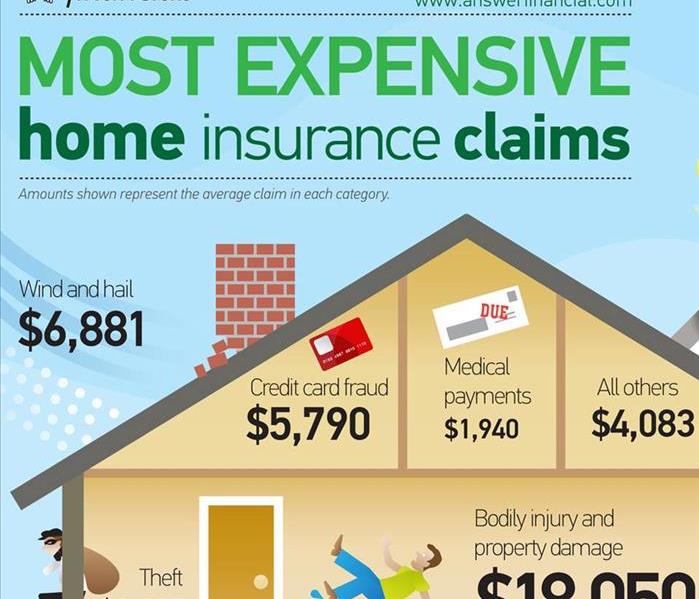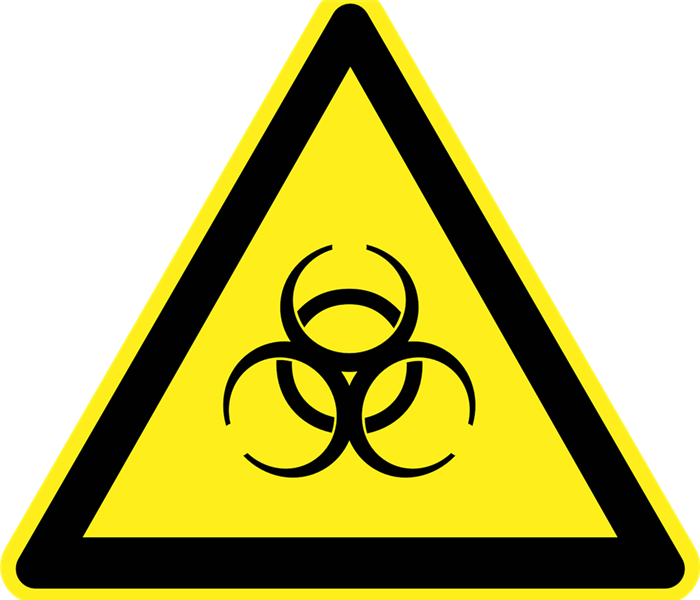Determining Death Coverage: Are Bodily Fluids Considered a Pollutant?
8/9/2017 (Permalink)
Are bodily fluids considered a pollutant?
It has been held that living, organic irritants or contaminants do not constitute pollutants under the policy definition because the irritants specifically identified in the definition, namely, "smoke, vapor, soot, fumes, acids, alkalis, chemicals and waste," are primarily inorganic in nature.
The current trend is to view pollutants and the pollution exclusion in connection with environmental issues. Therefore, bodily fluids are not a pollutant, meaning there is coverage in many instances.
For further details from a related article, click here.
Is Hazard Insurance the Same as Homeowners?
7/27/2017 (Permalink)
 For maximum protection against the unexpected, a reliable homeowners insurance policy is the way to go.
For maximum protection against the unexpected, a reliable homeowners insurance policy is the way to go.
As a home owner, you will likely have a need for this insurance at some point in your lifetime. Lending companies tend to use the terms "hazard insurance" and "homeowner's insurance" interchangeably, but there is a definable difference between the two.
Hazard insurance, which protects you financially from the effects of damage to the structure of your home from hazards such as natural events, vandalism, and fire, is usually bought PART OF your homeowner's insurance policy. Generally hazard coverage is not sold separately but is combined with liability and contents coverage as a package.
There are certain hazards that are not covered by homeowner’s insurance and they are listed as exemptions in the policy. Examples include damage caused directly by pollution, floods, and earth movement. Open perils policies provide insurance coverage for any reason not specifically excluded in the policy. A named perils policy, on the other hand, provides coverage only for the perils listed. A homeowners named perils policy typically covers 16 named perils including fire, theft, windstorms and vandalism.
A standard homeowners HO3 policy covers the structure of your home under open perils and contents such as clothes, furniture, appliances and books under named perils. A standard homeowners HO5 policy covers the structure and contents under open perils. Many insurance companies have modified versions of the HO3 and HO5 policies so if you have questions about your homeowners policy coverage, be sure to speak with your insurance agent.
For additional information from a related article, click here.
Factors to consider when faced with a biohazard cleanup
4/7/2016 (Permalink)
 If you are faced with a biohazard cleanup, our professional, compassionate staff can guide you through the process.
If you are faced with a biohazard cleanup, our professional, compassionate staff can guide you through the process.
If you are faced with a biohazard cleanup, such as a trauma scene, sewage backup, or hoarding situation, here are some key factors to consider:
- Avoid exposure to any contaminants present. There are serious health risks associated with exposure to blood, bodily fluids, animal waste, sewage, and other biohazardous materials. Treat all potentially hazardous materials as if they are contaminated.
- Assess ways to secure your personal safety and contain the situation, such as turning off the HVAC system and avoiding standing water or sagging ceilings.
- Before attempting to clean up a trauma scene yourself, particularly when it involves a loved one, consider the long-term mental and emotional consequences of doing so. The cleanup process can be emotional and traumatic in itself. Biohazard cleanup professionals are trained to deal with trauma situations with compassion and discretion.
- If you would like assistance with a biohazard cleanup, our trained professionals can assess the situation, provide a no-cost estimate, and clean the affected areas and dispose of the waste in accordance with federal and state regulations.






 24/7 Emergency Service
24/7 Emergency Service

